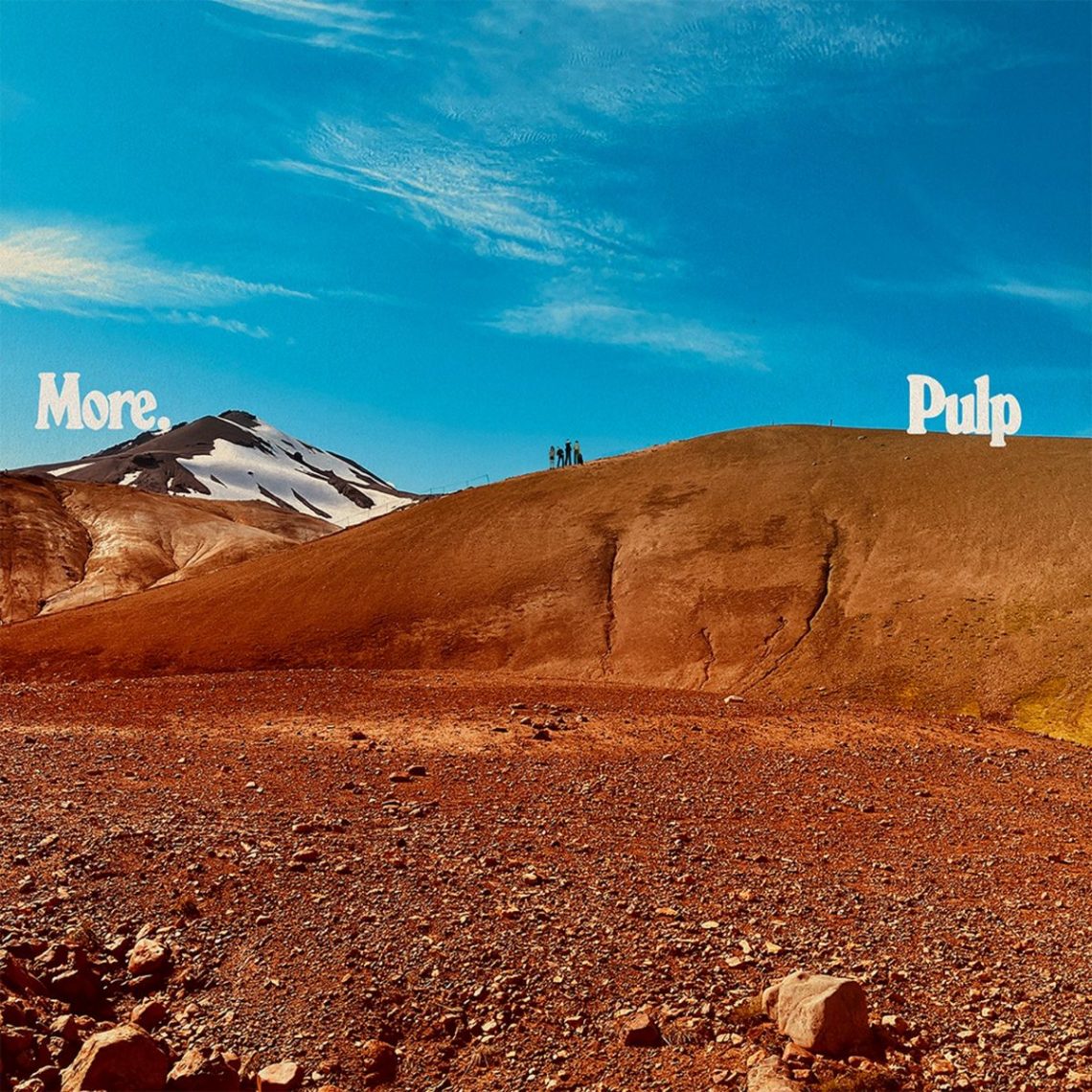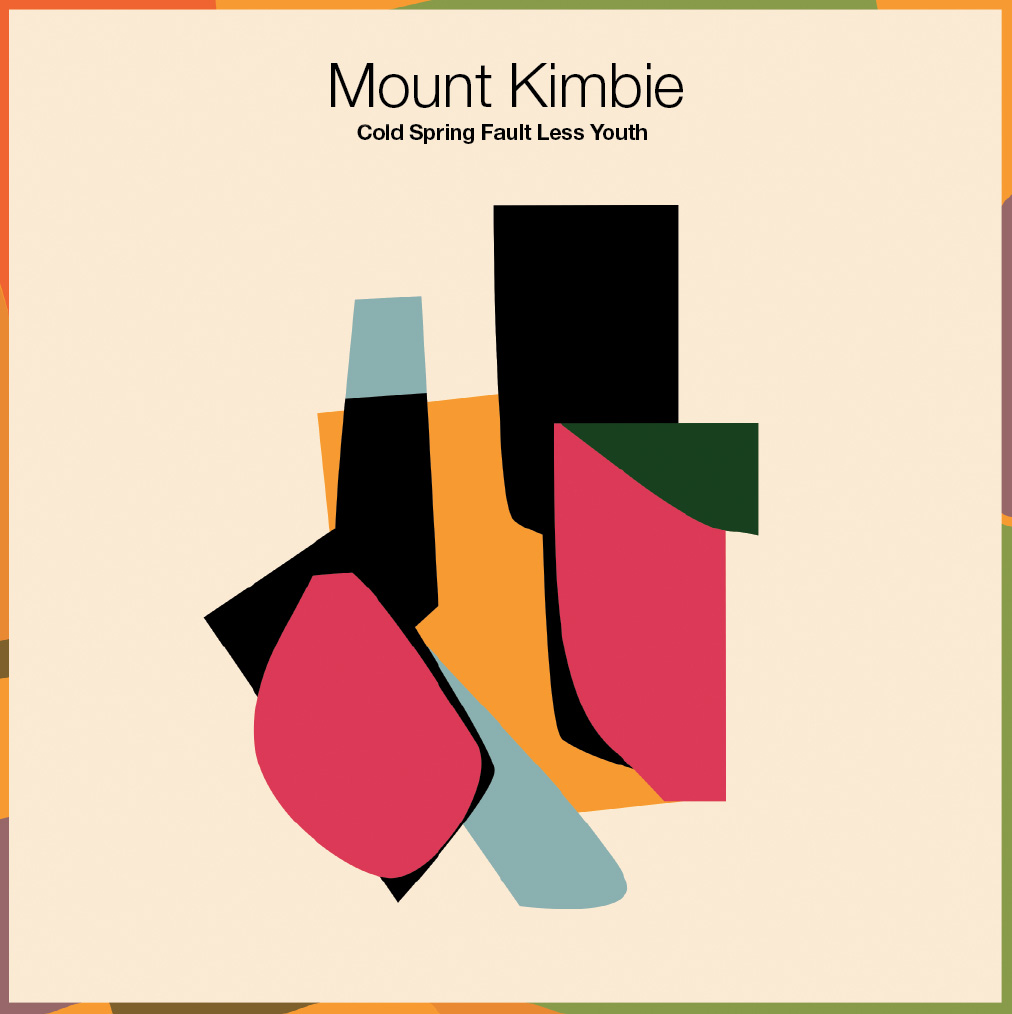Everyone’s at it these days, aren’t they? Ever since the future was officially cancelled, it feels like open season at the nostalgia factory. “New” Beatles singles, “lost” Bowie product, “classic” line-ups reunited, it’s a Record Collector subscriber’s wet dream out there.
It therefore shouldn’t be THAT surprising that music from “the 90s” is plenty fertile ground for waybackwhenification. Every single-word band from the era Sleeper to Feeder and all the way up to Blur have been pulled together for “one last job” or if you prefer, payday.
And now Pulp have made a new album – cheekily entitled More.
By rights it shouldn’t be any different, just another act tapping into their former glories, mining the nostalgic feels for all their worth.
Jarvis himself is adamant: “Some people might say it’s nostalgia, but it seems more potent to me. You’re tapping back into the energy of what you felt, and it comes back to life.”
I say objectivity is an overrated thing. It is very hard dear reader – after listening to More, not to agree with JC. More is unquestionably a good Pulp album. Moreover, it’s a good Pulp album that is completely cognisant of the two decades that have elapsed since the last Pulp album, not to mention the 40-plus years of the band’s entire existence.
But first – a little personal history – aka nostalgia. I was 18 when I first learned of Pulp. It was in the Sunday Times Culture section, which I pilfered weekly from the pile of supplements (Culture, Lifestyle, Review, Food and Drink – the bulk of the paper in fact) ritually discarded by my disinterested dad.
That week, accompanying an image of some flouncing beanpole in charity shop threads, was a small square of text which declared that Pulp had just released their new single ‘Razzamatazz’ and were “ones to watch in ‘93”.
There was something about that photograph. A brightly lit defiant geek in an assortment of coloured nylon fabrics, contorting his lengthy frame while staring unabashedly down the barrel of the camera. The thrill of finding out this odd yet oddly familiar individual was called Jarvis Cocker. The name of the band – at a time when naming your band after “stuff” was de rigeur. Later on, I discovered that one of them played electric violin and that they came from Sheffield – just like ABC and Human League. Later still, I bought Intro – The Gift Recordings on cassette and I finally heard their music. ‘Razzamatazz,’ ‘Babies,’ Sheffield bloody Sex City, They sounded EXACTLY as I’d imagined in my head. Scratchy, propulsive, swirly, sultry whispered vocals, plaintive, saucy, real. Vignettes of frantic sex and desperate hopes and dreams in bedsits. I was 18 when I first learned of Pulp and by fuck was I ready for them. And I was not alone.
This was around the time a reluctant Suede were declared the daddies of a nascent scene the music press and PR departments were so desperate to will into “Brit pop”. Sure enough, the drek and the diamonds alike were inevitably congealed into that musical fatberg. Dragged unwillingly into the Britpop slipstream (and surely the “holy fuck” to Suede’s absent godfather), Pulp still felt readymade for the moment. Smarter, sexier, down-to-earthier than the mob. Jarvis was a clothes horse with a heart full of horny kitchen sink poetry.
Unbeknownst to us fresh crop of misshapes, Pulp had in fact been over a decade in the making by the time opportunity came calling. Jarvis was already in his 30s. And by fuck were they ready for us. Breakthrough album His n Hers may sound – as guitarist Mark Webber told me earlier this year – like it was recorded at the bottom of a well. But to our unattuned ears that trebly haunted sound only added to the lovely strangeness.
My first and only Glastonbury was 1995 – when Pulp stepped in as a last-minute replacement for The Stone Roses. We’d got in by bribing a steward with a tenner each and two wraps of speed – back when that was legitimate festival currency. The only things I remember about my one and only trip to the Eavis Estate was getting sunburned, glimpsing PJ Harvey in a pink catsuit, watching The Cure after taking bad acid and holding hands for dear life with a Spanish girl I’d just met (a JC lyric in the making surely).
And then I remember Pulp. More specifically – I remember Pulp finishing off with ‘Common People’ in front of 20,000 people and it still somehow feeling intimate, personal, just for “us”.
Writers and especially music writers do love a dash of self-penned hagiography. Nothing like a nice juicy paradigm shift, all primped and convenient and good for at least a couple of chapters in a hastily issued band biography. But y’know, sometimes shit just gets real all by itself. And in the case of Pulp there is “before Glastonbury” and “after Glastonbury”. It wasn’t the only reason new album Different Class went mega, but it sure as hell didn’t hurt.
1995 was the year the cult went corporate, and the misshapes gave way to the multitudes. There was all kinds of Pulp merch – even ‘Underwear’ for god’s sake. It was a giddy, if vapid time for pop music in general, full of arseholery, jingoistic bullshit, unearned chutzpah and Northern Uproar. And just a wee bit of cocaine. Yet Pulp were a different class. Hadn’t they even declared as much?
Their follow-up – 1997’s This is Hardcore is a fraught and jittery response to fame, fortune and A-list access. It’s also their masterpiece in my opinion. While it did what record executives might euphemistically describe as “ok”, it did not give the slavering casuals another ‘Common People’. By the time the lovely and surprisingly pastoral We Love Life squeaked out at the beginning of the 21st century, with one Scott Walker at the production helm, there was little fanfare, no media storm. Even the band seemed to be bored with being Pulp. Pulp didn’t so much break up as gently atomise into homeopathic un-existence. Jarvis became what the British like to call “a national treasure”. A quotable, adorable bake-off sort of chap. And god bless ’im for all that.
The band regrouped in 2011 for some big gigs, and then again in 2023 – for some even bigger gigs. I saw them in Finsbury Park. I managed to lose my friends for the entire gig and sat on a hill on my own nursing three plastic pints of beer, swaying to ‘Sorted for Es and Whizz’ as the sun went down… Kind of perfect/kind of dislocated/very Pulp.
There was one single in 2013 (‘After You’) but beyond that it seemed that Pulp were content to own their heritage status. Occasionally reactivating to relive former glories for increasingly large numbers of people in a field. Not that we were complaining. If anybody was allowed it, was Pulp. Jarvis made hectares feel as intimate as an upstairs room in a pub. They were always the exception to the rule.
And then, to paraphrase a certain Irish comedian, there’s More.
There’s always a weird balancing act that reformed bands – especially ones that inspired so much devotion – have to navigate.
Is there sufficient creative momentum to overcome the obvious cynical pitfalls? Do you have something valid, indeed, More to say? Is it More than enough to distract from the tacky shiny lure of the financial incentives?
To this I have to say yes. Let’s face it – Pulp have nothing to prove. Their stadium gigs this summer will be filled regardless. And yet still there is More.
More feels and sounds like an act of collective will, a creative rejuvenation. You can sense throughout that Jarvis, Candida, Mark and Nick – all in their 50s and 60s now are, blimey, enjoying it again.
James Ford – the go-to pizzazzle man for bands of a certain vintage – produces a sound that pops in bright, stadium-ready primary colours, but still leaves room for traces of past glories (yes, including their “eastern European disco” phase).
The effortlessly breezy, punch the air arch-nostalgia of opening track ‘Spike Island’ was, Mark Webber told me, something of an outlier for an album of more sombre, reflective cuts. This isn’t entirely true though. There are admittedly many flashes of regret or reflection throughout. “It’s so so hard… but everybody’s got to grow up… nobody wants to grow up” he laments on the irresistible chug of Grown Ups, but sure self-reflection is what being grown up is all about innit?
I’m also delighted to report that the band retains a certain (dare it be said) funky swagger throughout. Exempli Gratia: Second single ‘Got to Have Love’ – which you will have heard by now – is a stomper. A 24-year-old demo dusted down and tarted up by team Ford, it’s a galloping toreador of a stomper in which Jarvis opines that without love “you’re just making a fool of yourself, you’re just jerking off inside somebody else”.
It’s a deliberate other-end-of-the-telescope response to ‘F.E.E.L.I.N.G.S. C.A.L.L.E.D. L.O.V.E.’ – a middle-aged divorcee’s last orders’ dance request, and it’s magnificent. It’ll be great live. Did I mention the augmented band sound incredible throughout More? This is an album designed to be played at maximum volume.
Tina is a stirring string-laden romp in which Jarvis fantasises about a knee trembler by the supermarket bins with an imaginary girlfriend. “Tonight I have been thinking about scenes from a marriage which never took place” he reveals with all the pathos that thirty years of extra living brings. Mike Leigh set to a shuffle beat.
‘My Sex’ for one is a great plaintive, lolloping bass-driven thing. “My Sex don’t make no sense” he explains, before hitting the chorus “If you show me yours, I’ll show you mine, but hurry cos my sex is running out of time”.
Another priapic paean ‘Slow Jam’ slinks EXACTLY as you’re currently hearing it in your head… Jarvis has been deconstructing and reconstructing the mysteries of sex and love for us for decades, and at 61 he isn’t about to stop, just… recalibrate.
Another swooner – ‘Background Noise’ begins with delicious swells and ebbs of screeching synth and guitar a la the “haunted well” years, as Jarvis attempts to anatomise a broken relationship. “I walked out of the house it began to rain got on the train started thinking about being single again”. It’s up there with the likes of ‘Do You Remember The First Time’ a one of those great “personal as universal” Pulp tracks.
The closing pair of ‘Hymn of the North’ (premiered at live shows in 2023) and Sunset make for a sublime if almost comically elegiac conclusion.
‘Sunset’ is the sweetest anti-capitalist railing you’re likely to hear. “I’d like to teach the world to sing but I do not have a voice” Jarvis sings to an accompaniment of scraped and plucked strings, before he’s met in the chorus by the heavenly voices of the Eno family “It’s just a sunset someone said, but now they’ve found a way to make it pay…”
“This is the best that we can do” says Jarvis in closing his written introduction to this album. He hopefully won’t be surprised to learn that that is more than good enough.
Nostalgia be damned. We weren’t expecting it or even necessarily needing it, but More is unmistakably a great new Pulp album. Still funny, still honest, but perhaps more so…
In these deeply dark times where the sense of our own humanity can seem very remote, it feels good to have this most human of bands back. Joe Nawaz
Dublin play Dublin’s 3Arena on 10th June






